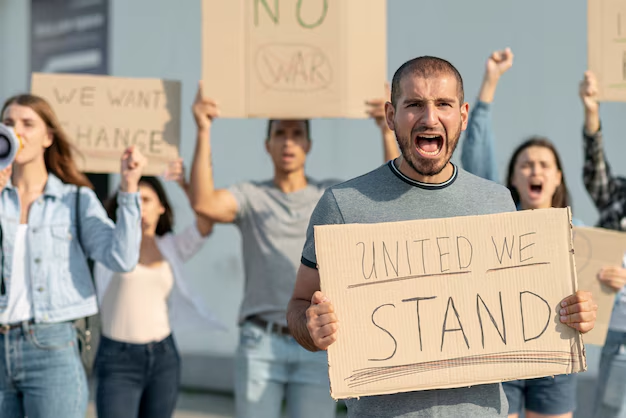Did President Trump Pause the WIC Program? Here's What You Need to Know
The Women, Infants, and Children (WIC) program is a vital component of public health and nutrition support aimed at assisting low-income pregnant women, new mothers, and young children. The question of whether President Trump paused or otherwise affected the WIC program during his administration has sparked interest and concern among many Americans. This article dives into the intricacies of the WIC program under Trump's presidency, exploring the broader context and providing a comprehensive overview to help readers understand the situation.
Understanding the WIC Program
WIC's Purpose
The Special Supplemental Nutrition Program for Women, Infants, and Children, commonly known as WIC, supports nutritional security for low-income families. WIC provides vouchers and offers services such as nutrition education and breastfeeding support, catering specifically to pregnant women, infants, and children up to age five.
Impact on Families
WIC's benefits translate to tangible improvements in health and nutrition, influencing rates of preterm births, infant mortality, and childhood obesity. Its focus on education and support extends beyond financial aid, illuminating paths to better health outcomes for countless families. Understanding any potential changes to this program is paramount for stakeholders and beneficiaries alike.
Trump's Presidency and Public Assistance Programs
Policy Focus
Throughout his presidency, President Trump aimed to reshape various public assistance programs. His administration focused on promoting work requirements and program efficiencies. These efforts often spurred debates over their potential impacts on beneficiaries.
Broader Changes
While Trump did not specifically pause the WIC program, his administration introduced proposals affecting broader public assistance landscapes. These proposals included changes to welfare systems and supplemental nutrition aid, impacting perceptions and scrutiny regarding WIC.
The Built Environment: Administrative Proposals and Changes
Nutritional Assistance Policies
The Trump administration looked at modifying the Supplemental Nutrition Assistance Program (SNAP), prompting concerns within WIC communities. Changes proposed in SNAP, another crucial nutritional assistance program, led to continued vigilance among WIC supporters about possible impacts.
Budgetary Considerations
During budget discussions, WIC funding frequently came under examination. Proposed budget cuts often sparked concern about service reductions or eligibility changes. However, WIC has holistic benefits that garnered substantial community support, helping maintain its funding through bipartisan efforts.
Clarifying Misconceptions and Addressing Concerns
Did Trump Pause WIC?
Despite the apprehension surrounding adjustments to social programs, the Trump administration did not pause or dismantle the WIC program. WIC continued to operate, albeit within broader fiscal and administrative frameworks aiming to scrutinize fund allocations.
Administrative Changes and Impacts
While WIC itself was not paused, administrative adjustments often influenced operational facets like outreach strategies and resource allocations. These administrative choices sometimes gave rise to concerns over potential indirect influences on service efficacy.
Exploring the Relationship Between Government Policy and WIC
Funding Integrity and Advocacy
Continued funding for WIC is a victory of advocacy. States and agencies must uphold the integrity of budget allocations, understanding the fundamental value WIC provides to vulnerable populations. Advocacy from health professionals and community stakeholders helps ensure its ongoing support.
Policy Interpretation and Public Perception
Public perception frequently hinges on how policies are communicated. Changes or proposals affecting broader welfare systems can impact perceptions surrounding WIC, even without direct effects on the program itself. Accurate information and transparent communication remain critical.
Navigating Support and Eligibility for WIC
Eligibility Criteria
Understanding WIC eligibility is crucial for potential beneficiaries. Eligibility typically depends on income, state residency, and health-related factors, ensuring that help reaches those who need it most. Clearing misconceptions helps current and prospective recipients access crucial support.
Current Applicability and Access
Today, WIC remains a cornerstone of nutritional aid. Beneficiaries receive support tailored to health requirements and life stages, assisting in nutritionally critical periods of growth and development. Programs continue reaching families, highlighting their resilient utility in public health arenas.
How to Get the Most Out of WIC
💡 Practical Tips for Beneficiaries
- Understand Eligibility: Regularly check eligibility criteria to ensure continued access and potential benefits expansion.
- Engage in Education Opportunities: Leverage nutritional and breastfeeding education provided by WIC for healthier lifestyle choices.
- Maximize Benefit Utilization: Be aware of voucher content and expiration to ensure optimal benefit utilization.
- Stay Informed: Keep abreast of policy changes that might affect eligibility or benefits to remain prepared for adjustments.
Empowering Communities Through Information
President Trump's administration did not halt WIC; instead, the continuous provision of WIC services highlights its recognized need and significance. The potential challenges and policy discussions underscore the importance of maintaining informed, active involvement in community advocacy and program support. As policies evolve, continued emphasis on transparent communication and educational outreach ensures the resilience of WIC and similar initiatives that enhance public health and support vulnerable populations.
While understanding intricacies and political landscapes may seem daunting, simple actions, like knowing eligibility requirements and supporting advocacy, empower families to benefit from WIC's offerings effectively. Through collective awareness and engagement, communities can uphold WIC's mission of fostering nutrition and health among those who need it most.

